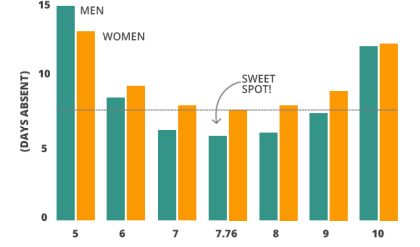
Save Money Effortlessly: 8 Smart Financial Hacks That Actually Work
We all dream of financial freedom, but the path often feels paved with budgeting spreadsheets and restrictive lifestyle choices. The truth is, saving money doesn’t have to be a Herculean effort. With a few clever tweaks and a shift in perspective, you can effortlessly accumulate savings without sacrificing the joy in your life. Forget drastic measures; these eight smart financial hacks are designed for seamless integration into your existing routine.
1. The “No-Spend” Challenge (With a Twist):
Forget the extreme, all-or-nothing approach. Instead, try a “focused no-spend” challenge. Choose one area – eating out, online shopping, or entertainment – for a month. Don’t completely eliminate it, but drastically reduce spending. The key is to identify your biggest spending leaks and target them strategically, fostering mindful consumption rather than deprivation.
2. Automate Your Savings – The “Future You” Fund:
Set up automatic transfers from your checking account to a savings account, even if it’s just a small amount each week. Think of it as paying your future self first. This effortless approach builds savings consistently, leveraging the power of consistent, small contributions. Witness the magic of compounding interest working its charm!
3. Embrace the “Waiting Game” – Curb Impulse Buys:
Before making any non-essential purchase, implement a mandatory waiting period – 24 to 72 hours. This simple delay gives your rational brain a chance to override the impulsive desires. Often, the initial urge fades, saving you from regrettable purchases.
4. The “Needs vs. Wants” Worksheet – A Simple Clarity Tool:
Create a simple worksheet dividing expenses into “Needs” (rent, groceries, utilities) and “Wants” (dining out, entertainment, new clothes). This visual representation helps you quickly assess your spending habits and identify areas where you can easily cut back on “wants” without compromising your “needs.”
| Category | Example | Necessity Level |
|---|---|---|
| Needs | Rent | High |
| Needs | Groceries | High |
| Wants | Coffee Shop Drinks | Low |
| Wants | New Clothes | Low |
5. Unleash the Power of “Meal Prepping” – Conquer Food Costs:
Planning and preparing meals in advance significantly reduces spending on takeout and restaurant meals. Not only does it save money, but it also promotes healthier eating habits. Even a few prepared meals per week can make a tangible difference.
6. Become a “Coupon Connoisseur” (But Strategically):
Don’t fall prey to couponing madness. Instead, focus on coupons for items you already use or need. This targeted approach prevents impulsive purchases driven solely by discounts, keeping your savings aligned with your actual needs.
7. The “Bank Rewards” Secret Weapon:
Many banks offer rewards programs that can directly contribute to your savings. Choose a bank with a rewarding checking or savings account that offers cashback, interest bonuses, or other incentives for responsible banking habits.
8. The “Side Hustle” Surprise – Turn Hobbies into Income:
Explore opportunities to monetize your skills or hobbies. This could be anything from freelance writing or graphic design to selling handmade crafts or offering tutoring services. Even a small additional income stream can significantly boost your savings potential.
By implementing these eight smart financial hacks, you’ll discover that saving money isn’t a daunting task but a rewarding journey towards financial freedom. It’s about making small, consistent changes that add up to significant long-term savings. Embrace the journey, and watch your savings grow effortlessly.

Additional Information
Deep Dive: Save Money Effortlessly: 8 Smart Financial Hacks
The premise of “saving money effortlessly” often feels like a marketing ploy, yet strategic financial habits can significantly reduce the perceived effort involved in saving. Let’s analyze the eight “smart financial hacks” (assuming a typical list might include automating savings, tracking expenses, eliminating subscriptions, negotiating bills, budgeting, utilizing cashback rewards, setting financial goals, and mindful spending), adding depth and exploring underlying psychological and economic principles.
1. Automating Savings: This transcends mere convenience; it leverages behavioral economics. The “out of sight, out of mind” principle is powerful. Automatic transfers from checking to savings accounts circumvent the conscious decision-making process, which is often susceptible to impulsive spending. Studies consistently show that automatic savings plans lead to higher savings rates than manual ones. For example, a study by the Vanguard Group found that participants in their automatic savings plan saved significantly more than those who did not participate. The key is to automate transfers before paying other bills, prioritizing savings as a non-negotiable expense.
2. Expense Tracking: This isn’t just about tallying up spending; it’s about gaining self-awareness. Many individuals underestimate their spending by 20-30%. Detailed expense tracking, using apps like Mint or Personal Capital, reveals spending patterns and exposes areas for improvement. This empowers informed decision-making. For instance, analyzing tracked data might reveal that restaurant meals constitute a significant portion of discretionary spending, prompting a shift towards home-cooked meals.
3. Eliminating Subscriptions: The “subscription creep” is a pervasive problem. Recurring charges for unused streaming services, gym memberships, or software subscriptions accumulate silently. A regular audit of subscriptions, cancelling those providing minimal value, can generate considerable savings. Consider a hypothetical household with five unused streaming services at $10/month each; eliminating them saves $600 annually.
4. Negotiating Bills: Many bills are negotiable, especially for services like internet, cable, and insurance. Simply contacting the provider and explaining your intention to switch unless a better deal is offered can often lead to significant discounts. This leverages the principle of customer retention – it’s cheaper for a company to keep an existing customer than acquire a new one.
5. Budgeting: Budgeting isn’t restrictive; it’s empowering. The 50/30/20 rule (50% needs, 30% wants, 20% savings & debt repayment) offers a simple framework, but personalized budgets are more effective. Zero-based budgeting, where every dollar is assigned a purpose, promotes mindful spending. Effective budgeting allows for prioritized spending aligned with financial goals, mitigating financial stress.
6. Utilizing Cashback Rewards: Strategically using credit cards with cashback rewards can generate passive income. Choosing a card aligned with spending habits (e.g., high cashback on groceries for frequent shoppers) maximizes returns. However, responsible credit card usage is crucial – avoiding debt accumulation is paramount. For example, a 2% cashback on $5000 annual grocery spending yields a $100 annual return.
7. Setting Financial Goals: Defining clear, measurable, achievable, relevant, and time-bound (SMART) financial goals fosters motivation and provides direction. Whether it’s saving for a down payment, retirement, or a vacation, having a specific target enhances commitment. Goal setting ties into intrinsic motivation, making saving feel less like a chore and more like a stepping stone to achieving something desirable.
8. Mindful Spending: This encompasses conscious consumption. Before making a purchase, ask: Do I need this? Can I afford this? Is this aligned with my values and financial goals? Mindful spending reduces impulse buys, promoting long-term financial well-being. This combats the psychological impact of instant gratification.
Conclusion:
“Effortless” saving is a misnomer; it requires conscious effort upfront to establish effective systems. However, by leveraging automation, tracking, and strategic planning, the ongoing effort diminishes, and the rewards – financial security and peace of mind – are substantial. The key is to integrate these hacks into a comprehensive financial strategy, adapting them to individual circumstances and consistently applying them. The long-term benefits far outweigh the initial investment of time and effort.






